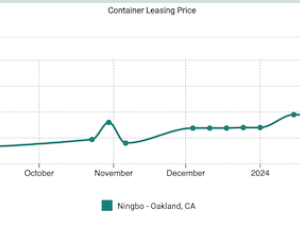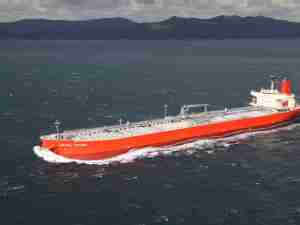Lloyd’s List reported that global shipping’s carbon dioxide emissions posted an increase of 4.9% in 2021 and were higher than 2019, according to Simpson Spence & Young. According to SSY, 833m metric tons of CO2 was emitted compared with 794m metric tons in 2020 and 800m metric tons in 2019, according to figures provided by SSY.
This news comes on the heels of multiple reports that cargo shipping companies are reaping in the profits as supply chains fail and the pandemic wages on. Bloomberg reported that ocean-freight carriers pulled in estimated profits of $150 billion in 2021 — a nine-fold annual jump after a decade.
“Now is the perfect time for international ocean shipping companies to invest their record profits into a horizon of hope for our shared future on this planet,” said Dawny’all Heydari, Campaign Lead of the Ship It Zero Campaign at Pacific Environment. “Carriers CMA-CGM, MSc, Cosco, Evergreen, and Yang Ming must commit to a 100% zero-emissions supply chain this decade, following initial leadership by Maersk. Their top Big Retail customers, Walmart and Target, must urge this speedy transition. Black and brown frontline communities are bearing the brunt of fossil-fuel spewing ocean cargo ships and the problem is only getting more severe with each passing day. It’s about time that the shipping sector takes its responsibility seriously and stops hurting our port cities and oceans in the name of profits.”
Of concern, Lloyd’s revealed that 75% of carriers and tankers will not meet new regulations mandated by the IMO by January 2023 unless they take “remedial action.”
If it were a country, the shipping industry would be the sixth largest emitter, ahead of Germany. On its current trajectory, maritime trade is projected to grow by as much as 130% by 2050 over today’s trade volume. Put simply: the world cannot stop the climate crisis without urgent action to decarbonize international shipping this decade.









